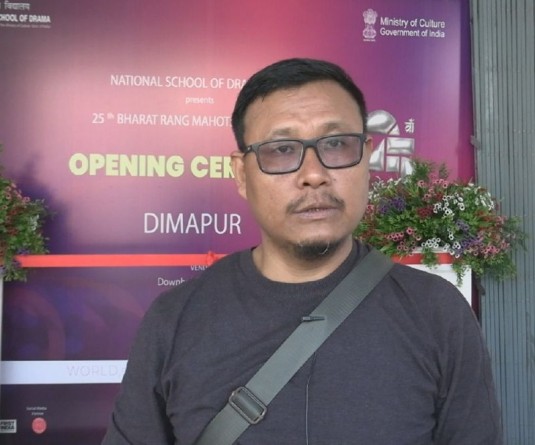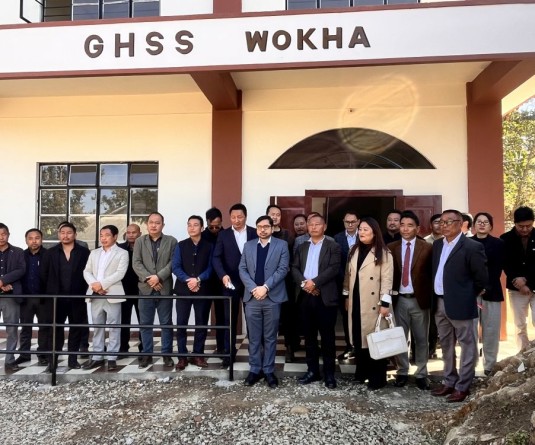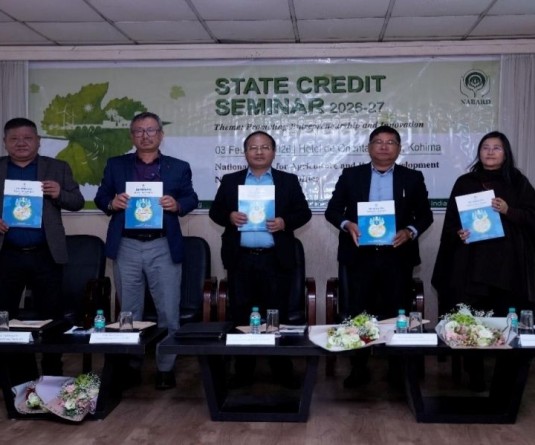Prof John Sema, Department of Political Science, Nagaland University speaking during the State Level Conference on Foundational Literacy & Numeracy, New Education Policy (NEP) & G20, organised by CBSE in collaboration and hosted at Livingstone Foundation International, Dimapur on June 14 (Morung Photo).
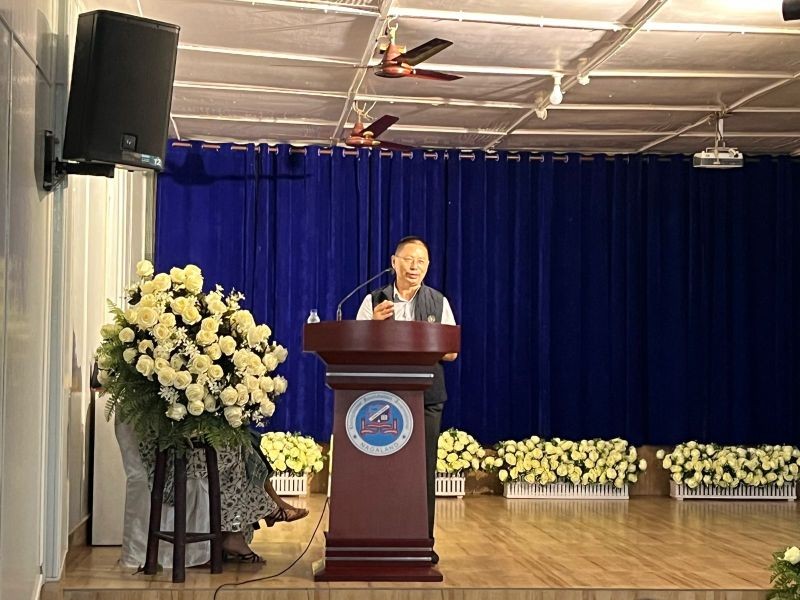
Morung Express News
Dimapur | June 14
On examining the challenges of implementing the National Education Policy (NEP) in Nagaland, Prof John Sema, Department of Political Science, Nagaland University viewed that the practice of keeping proxy and unqualified teachers hampers the proper implementation process of the NEP in government educational institutions. “This is one of the problems our students will continue to face,” he said.
In regard to NEP, he stated that the policy emphasises each student to be productive in their own field of expertise and interest though vocational streams and sports. This requires a more inclusive, flexible and skill-oriented education system on top of proper infrastructure and facilities at each of the educational institution.
Prof Sema made the observation during the State Level Conference on Foundational Literacy & Numeracy, New Education Policy (NEP) & G20, organised by the Central Board of Secondary Education (CBSE) in collaboration and hosted at Livingstone Foundation International, Dimapur on June 14.
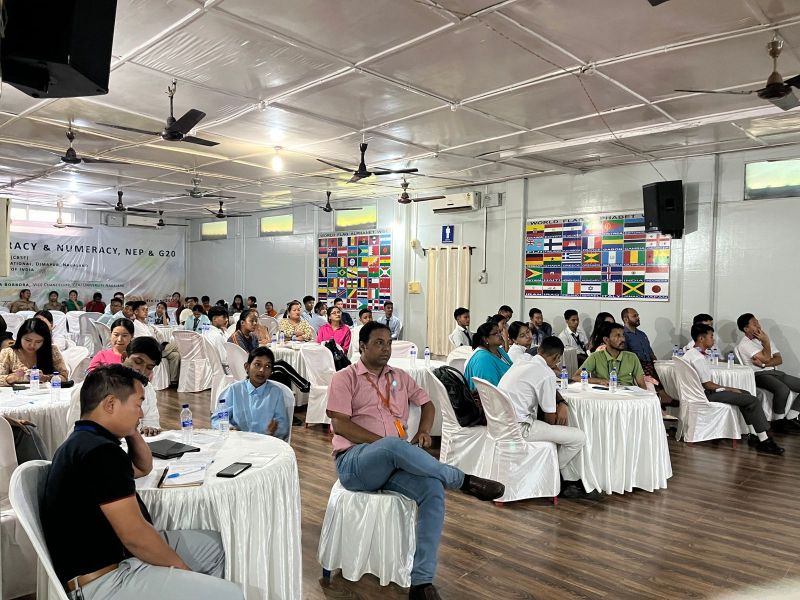
And with the state marred by lack of qualified teachers and basic provisions especially at the far-flung and rural areas, the task becomes more taunting, he viewed.
“We cannot remain as before but we have to speak up and deliberate what changes, transformation are required. Otherwise NEP will miserably fail,” he said. Civil society organisations, student bodies, community and local participation will be earnestly needed to implement it in letter and spirit. It also should be without any political pressure from outside, he added.
Being a professor who engages with university students, he observed that students require good foundational understanding of the subjects taught at higher levels. The basic has to be taught at the primary and secondary level.
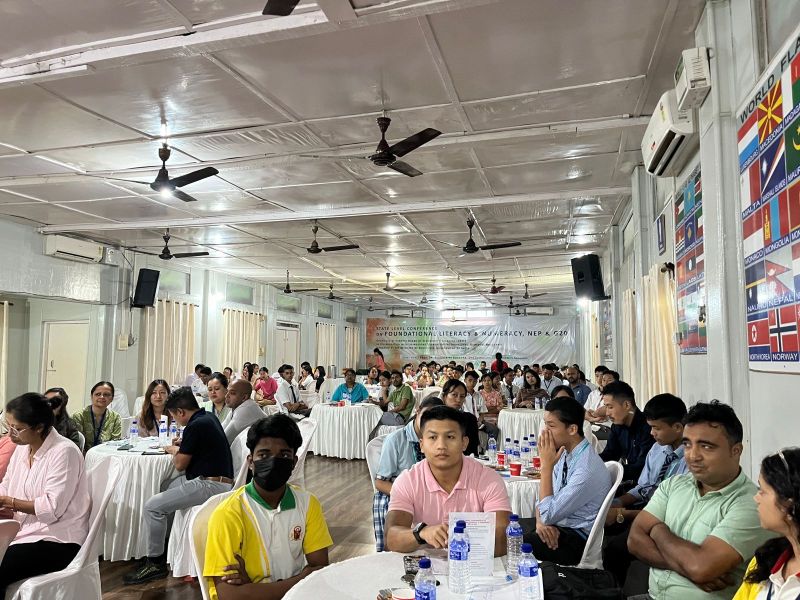
However, the current education system remains static, dependent on traditional teaching methods which needs to be revamped, he noted. It needs to be adaptive and go along with the change of time.
During the conference, he also provided an overview lecture of the NEP, its aims and objectives; and its implementation. With the new model, he explained that emphasis was to be given on conceptual understanding instead of rote learning along with critical thinking and analysis. For which teachers require proper training and understanding first, in order to adapt it to their teaching pattern.
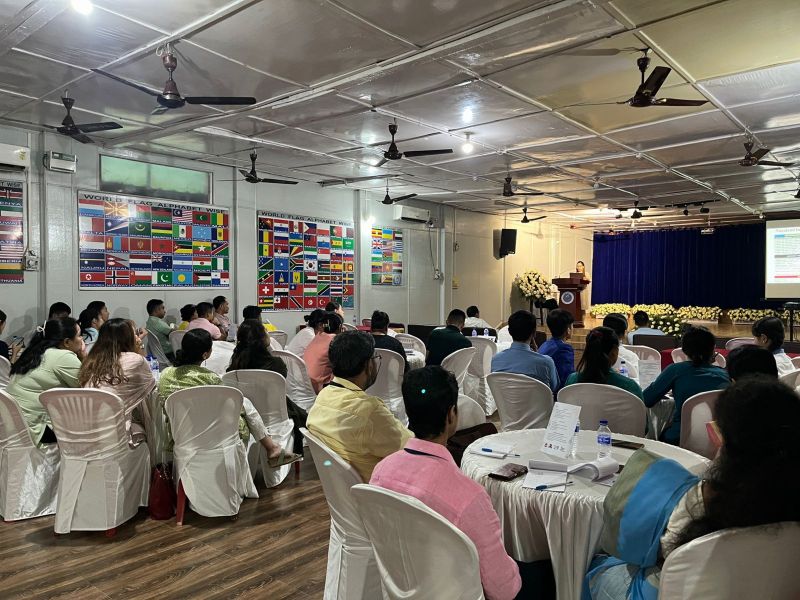
Earlier in the programme, Prof Dr Saundarjya Borbora, Vice Chancellor of ICFAI University, Nagaland spoke on the advantages envisaged by the NEP and the need to focus on foundational literacy and numeracy.
Dr Tolto Metha, team member of Nagaland Bamboo Development Agency further provided a lecture on G20 as well with specific focus on environmentalism and conservation of forest areas.
A total of 20 schools participated in the conference.
Welcome speech for the guests and participants was delivered by Dr Andrew Ahoto Sema, Chairman of Livingstone Foundation International. At the conclusion of the event, winners of the painting competition on G20 was announced along with distribution of prizes.



